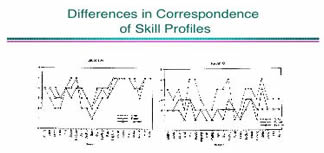|
Research>
Research
Interests and Activities
I am an
applied developmental psychologist whose interests center on individual
and situational variations in the development and use of cognitive
and language skills. My work starts from the premise that all situations
in which children find themselves, including formal assessment and
experimental situations as well as classroom instructional activities,
are social contexts. I focus on how the dynamics of these situations
foster or hinder children's learning and performance. I apply this
perspective both to the study of variations in the performance of 'typical'
children, and to the study of children identified as language or learning
disabled.
Currently,
I am engaged in a research project focused on parent-child interactions
in a homework situation. The specific focus of this project is on factors
influencing variations in parental structuring of their child's learning,
including parental perceptions of their child’s needs and parents’ attributions
for their child's successes and failures. A second project is focused
on the role of parent and teacher perceptions and support on the academic
success and self-esteem of students with learning disabilities. A third
project, still in the early stages, is focused on the roles of structure
and challenge in teachers’ interactions with children exhibiting
atypical cognitive and linguistic needs.
Related
recent publications:
Stone,
C. A. (1998). The metaphor of scaffolding: Its utility for the field
of learning disabilities. Journal of Learning Disabilities,
31, 344-364.
Boynton-Hauerwas,
L., & Stone, C. A. (2000). Are parents of school-age children with
specific language impairments accurate estimators of their child’s
language skills? Child Language Teaching and Therapy, 16(1),
73-86.
Carlisle,
J. F. Stone, C. A., & Katz, L. A. (2001). The effects of phonological
transparency on reading derived words. Annals of Dyslexia,
51, 249-274.
Stone,
C. A., & Doane, J. A. (2001). The potential for empirically based
estimates of expected progress for students with learning disabilities:
Legal and conceptual issues. School Psychology Review, 30,
476-489.
Fleming,
J. E., Cook, T. D., & Stone, C. A. (2002). Interactive influences
of perceived social contexts on the reading achievement of urban middle
schoolers with learning disabilities. Learning Disabilities Research & Practice,
17, 47-64.
Stone,
C. A., & May, A. J. (2002). The accuracy of academic self-perceptions
in adolescents with learning disabilities. Journal of Learning
Disabilities, 35. 370-383.
Stone,
C. A. (2002). Promises and pitfalls of scaffolded instruction for students
with language learning disabilities. In K. G. Butler & E. R. Silliman
(Eds.), Speaking, reading, and writing in children with language
learning disabilities: New paradigms in research and practice (pp.
175-198). Mahwah, NJ: Lawrence Erlbaum Assocs.
Stone,
C. A., Bradley, K., & Kleiner, J. (2002) Parental understanding
of children with language/learning disabilities and its role in the
creation of scaffolding opportunities. In B.Y.L. Wong & M. Donahue
(Eds.), The social dimensions of learning disabilities (pp.
133-160). Mahwah, NJ: Lawrence Erlbaum Assocs.
Stone, C.
A. (2004). Contemporary conceptual frameworks for language and literacy
learning. In C. A. Stone, E. Silliman, B. Ehren, & K. Appel (Eds.), Handbook
of language and literacy development and disorders. New York:
Guilford Press.
Stone, C. A. (2004). The Role of Social Support and Congruency of Perspectives
in Moderating Threats to Self-Concept in High-Functioning Adolescents
with Learning Disabilities: A Preliminary Report. Thalamus, 22(1), 40-50.
Carlisle,
J. F., & Stone, C. A. (2005). Exploring the role of morphemes
in word reading. Reading Research Quarterly, 40, 428-449.
Return
to Top
Current
Writing Projects:
Winter
2004
Kleiner, J.,
& Stone, C. A. (in preparation). Accuracy of parental predictions of
their child's task performance: Relations to scaffolding style and child
achievement.
Stone, C.
A., Bradley, K., Hanneman, T., May, A., & Pike, M. (in preparation).
Student, parent, and teacher perspectives on students’ academic
and social skills: Implications for the self-esteem of adolescents with
and without learning disabilities.
Return
to Top
|

